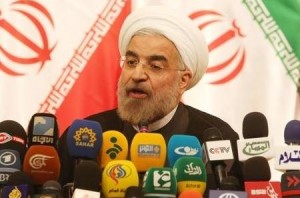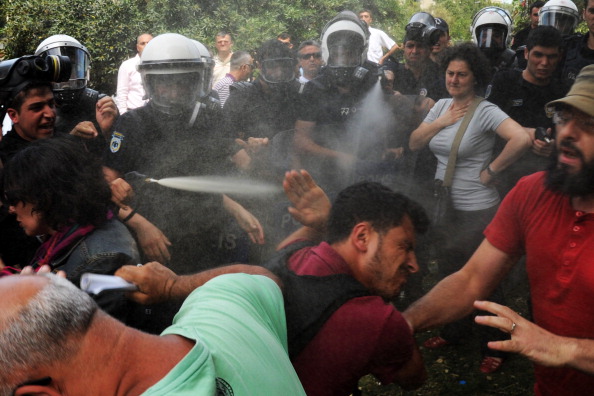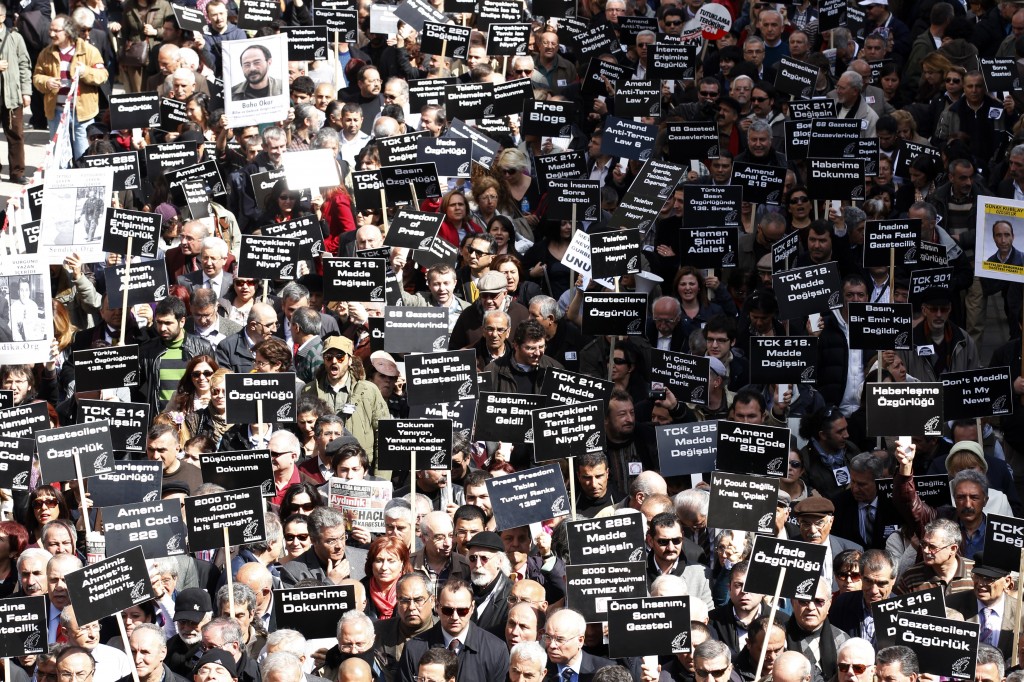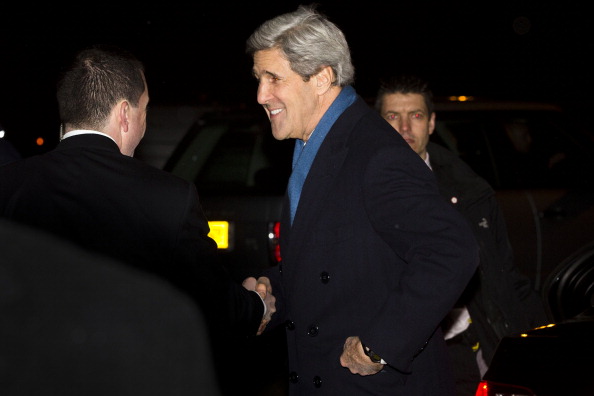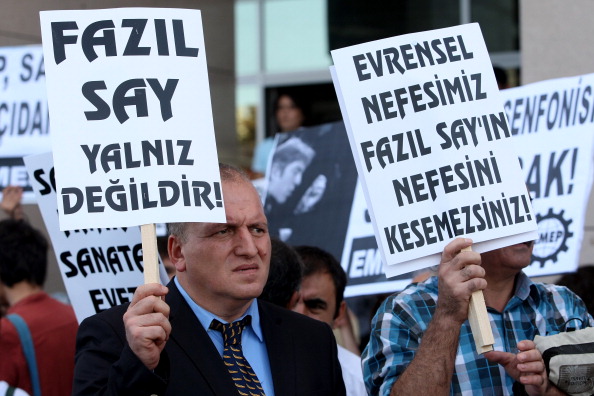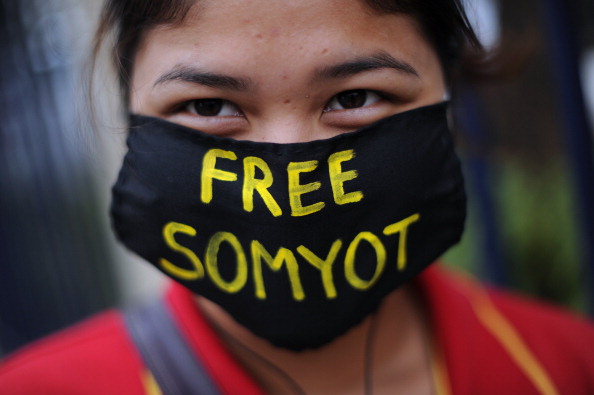
People hold campaign posters of Iranian presidential candidate, Hassan Rowhani in the streets during a presidential election rally on June 11, 2013 in Tehran, Iran (Photo Credit: Majid Saeedi/Getty Images).
Iran’s challenges are not few, from job creation and stopping inflation to improving foreign relations. Most presidential candidates in 2013 ran on such platforms. However, there was a key issue that was not directly addressed in their political vernacular: human rights.
While many jubilant Iranians and a hopeful international community are touting president-elect Hassan Rouhani as a reformist because of his promise to ease restrictions at home, free political prisoners, and to offer more transparency for Iran’s controversial nuclear program, it should not be ignored that he remains, nevertheless, among those select few candidates approved to run by Iran’s Guardian Council.
